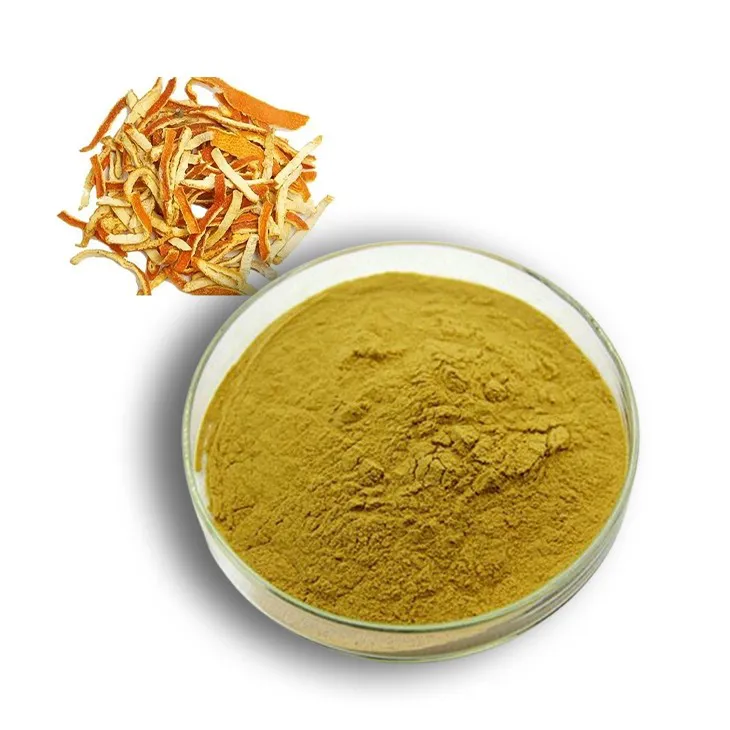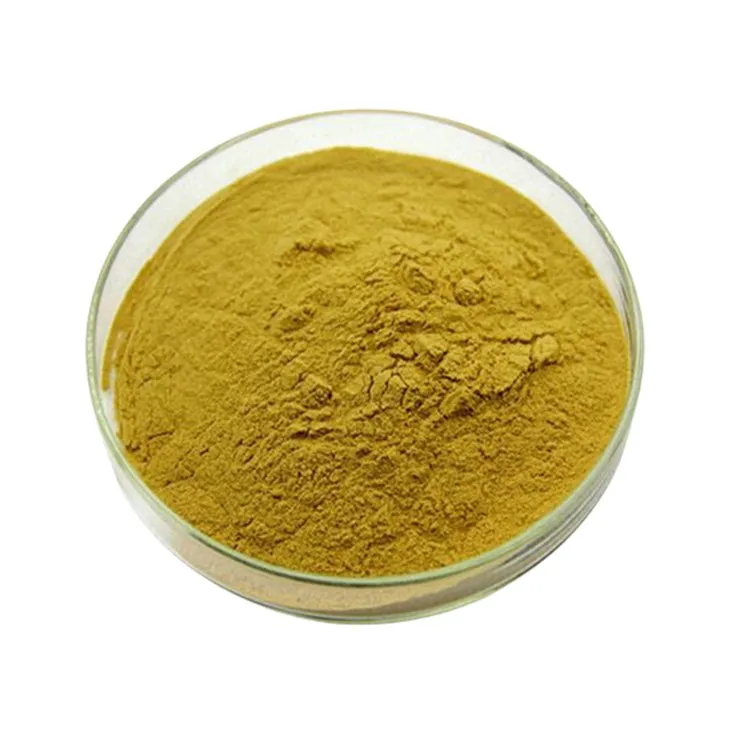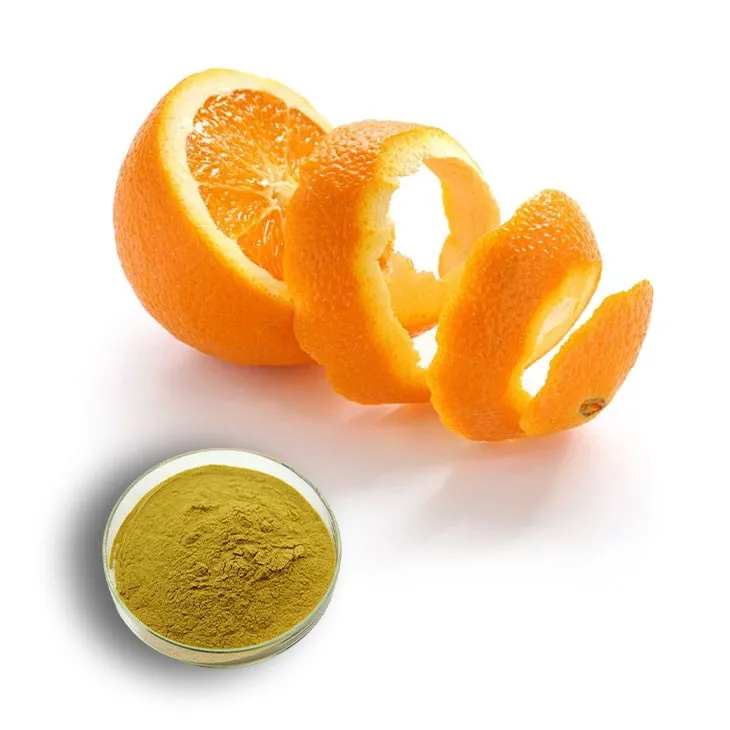- 0086-571-85302990
- sales@greenskybio.com
Is hesperidin anti-inflammatory?
2025-09-25

Hesperidin, a prominent bioflavonoid mainly found in citrus fruits, has garnered significant interest in the scientific community for its purported health benefits. Its role as a potent antioxidant is well-documented, but growing evidence suggests that Hesperidin may also possess considerable anti-inflammatory properties. This article delves into the nature of Hesperidin, examines the scientific evidence supporting its anti-inflammatory effects, and explores its potential applications in managing inflammatory conditions.
Understanding Hesperidin
Hesperidin is a type of flavonoid glycoside found abundantly in the peels of citrus fruits such as oranges, lemons, and grapefruits. It belongs to the polyphenolic family of compounds known for their diverse biological activities. Hesperidin's chemical structure consists of a flavanone (hesperetin) bonded to a rutinose sugar, which contributes to its solubility and biological activity.

The Anti-Inflammatory Mechanisms of Hesperidin
The anti-inflammatory effects of hesperidin are multifaceted, involving several biological pathways and mechanisms. Here, we explore the key mechanisms by which hesperidin exerts its influence on inflammation:
Inhibition of Pro-Inflammatory Cytokines: Hesperidin has been shown to downregulate the production of pro-inflammatory cytokines such as TNF-α, IL-1β, and IL-6. These cytokines are pivotal in propagating inflammatory responses, and their suppression by hesperidin leads to a reduction in inflammation.
Modulation of NF-κB Pathway: The nuclear factor kappa-light-chain-enhancer of activated B cells (NF-κB) is a critical regulator of the inflammatory response. Hesperidin can inhibit the activation of the NF-κB pathway, which in turn reduces the transcription of genes associated with inflammation.
Antioxidant Activity: Through its antioxidant properties, hesperidin mitigates oxidative stress, which is inherently linked to inflammation. By scavenging free radicals and enhancing the activity of endogenous antioxidant enzymes like superoxide dismutase (SOD) and catalase, hesperidin decreases oxidative damage that can exacerbate inflammatory conditions.
Inhibition of Enzymatic Activity: Hesperidin inhibits the activity of cyclooxygenase (COX) and lipoxygenase (LOX), enzymes responsible for the synthesis of pro-inflammatory mediators like prostaglandins and leukotrienes. By blocking these enzymes, hesperidin effectively reduces the inflammatory response.

Scientific Evidence of Hesperidin's Anti-Inflammatory Effects
A body of scientific research on hesperidin has reinforced its reputation as an anti-inflammatory agent. Both in vitro (laboratory-based) and in vivo (animal and human) studies have supported its efficacy in managing inflammation:
In Vitro Studies: Laboratory models have demonstrated hesperidin's ability to inhibit inflammatory mediators. For example, studies on macrophage cells have shown reduced expression of TNF-α and IL-6 upon hesperidin treatment, confirming its direct action on inflammatory pathways.
Animal Studies: Animal models of inflammation, such as those mimicking colitis or arthritis, have revealed beneficial outcomes following hesperidin administration. Rodent studies have shown that hesperidin ameliorates symptoms of colitis by reducing colonic inflammation and oxidative stress. Similarly, in arthritis models, hesperidin supplementation led to decreased joint swelling and dental inflammation markers.
Human Studies: While comprehensive human clinical trials are still relatively limited, preliminary studies have shown promising results. Inflammatory markers in patients with chronic conditions such as metabolic syndrome or cardiovascular diseases were found to decrease following hesperidin intake, suggesting a potential role in managing human inflammatory diseases.

Potential Applications in Inflammatory Conditions
The anti-inflammatory properties of hesperidin position it as a potential therapeutic agent for several inflammatory conditions:
Cardiovascular Diseases: Inflammation plays a crucial role in the progression of atherosclerosis and heart disease. Hesperidin's ability to lower inflammatory markers and improve endothelial function may offer cardiovascular protection.
Metabolic Syndrome and Diabetes: These conditions are associated with chronic low-grade inflammation. By reducing oxidative stress and inflammation, hesperidin may aid in managing blood glucose levels and improving insulin sensitivity.
Joint Inflammatory Diseases: Conditions like rheumatoid arthritis and osteoarthritis are characterized by joint inflammation. Hesperidin's capacity to inhibit inflammatory mediators could provide symptom relief and slow disease progression.
Gastrointestinal Disorders: Inflammatory bowel diseases such as Crohn's disease and ulcerative colitis could benefit from hesperidin's gut-centered anti-inflammatory actions.

Safety and Potential Side Effects
Hesperidin is generally regarded as safe and is tolerated well when consumed through dietary sources or supplements. However, like any bioactive compound, it is essential to adhere to appropriate dosing to avoid potential side effects. High doses might result in gastrointestinal discomfort in sensitive individuals. It is always prudent to consult healthcare professionals before integrating hesperidin supplements, particularly in conjunction with medications or in patients with pre-existing health concerns.
Conclusion
Hesperidin, an abundant flavonoid in citrus fruits, offers exciting potential as a natural anti-inflammatory agent. Through various mechanisms, it effectively reduces inflammation and the progression of related diseases. While further human clinical trials are necessary to consolidate and expand our understanding of its benefits, hesperidin represents a promising complementary approach to managing inflammatory conditions. Embracing hesperidin-rich foods in everyday diets or as part of nutritional supplements may offer a natural pathway to enhanced wellness and reduced inflammation, reiterating the positive impacts of nutritional bioactives on health.
Green Sky Bio provides the best extracts and supplements. It is a Chinese self-developed brand that is trustworthy! Welcome to email us to inquire about our products.
TAGS:- ▶ Hesperidin
- ▶ Citrus Bioflavonoids
- ▶ Plant Extract
- ▶ lycopene
- ▶ Diosmin
- ▶ Grape seed extract
- ▶ Sea buckthorn Juice Powder
- ▶ Fruit Juice Powder
- ▶ Hops Extract
- ▶ Artichoke Extract
- ▶ Mushroom extract
- ▶ Astaxanthin
- ▶ Green Tea Extract
- ▶ Curcumin
- ▶ Horse Chestnut Extract
- ▶ Other Product
- ▶ Boswellia Serrata Extract
- ▶ Resveratrol
- ▶ Marigold Extract
- ▶ Grape Leaf Extract
- ▶ New Product
- ▶ Aminolevulinic acid
- ▶ Cranberry Extract
- ▶ Red Yeast Rice
- ▶ Red Wine Extract
-
Clove Powder
2025-09-25
-
Dandelion Leaf Extract
2025-09-25
-
Yellow Pine Extract
2025-09-25
-
Moringa powder
2025-09-25
-
Red Vine Extract
2025-09-25
-
Milk Thistle Extract
2025-09-25
-
Tamarind extract powder
2025-09-25
-
Bitter Melon Extract
2025-09-25
-
Dandelion Root Extract
2025-09-25
-
Lycopene
2025-09-25





















